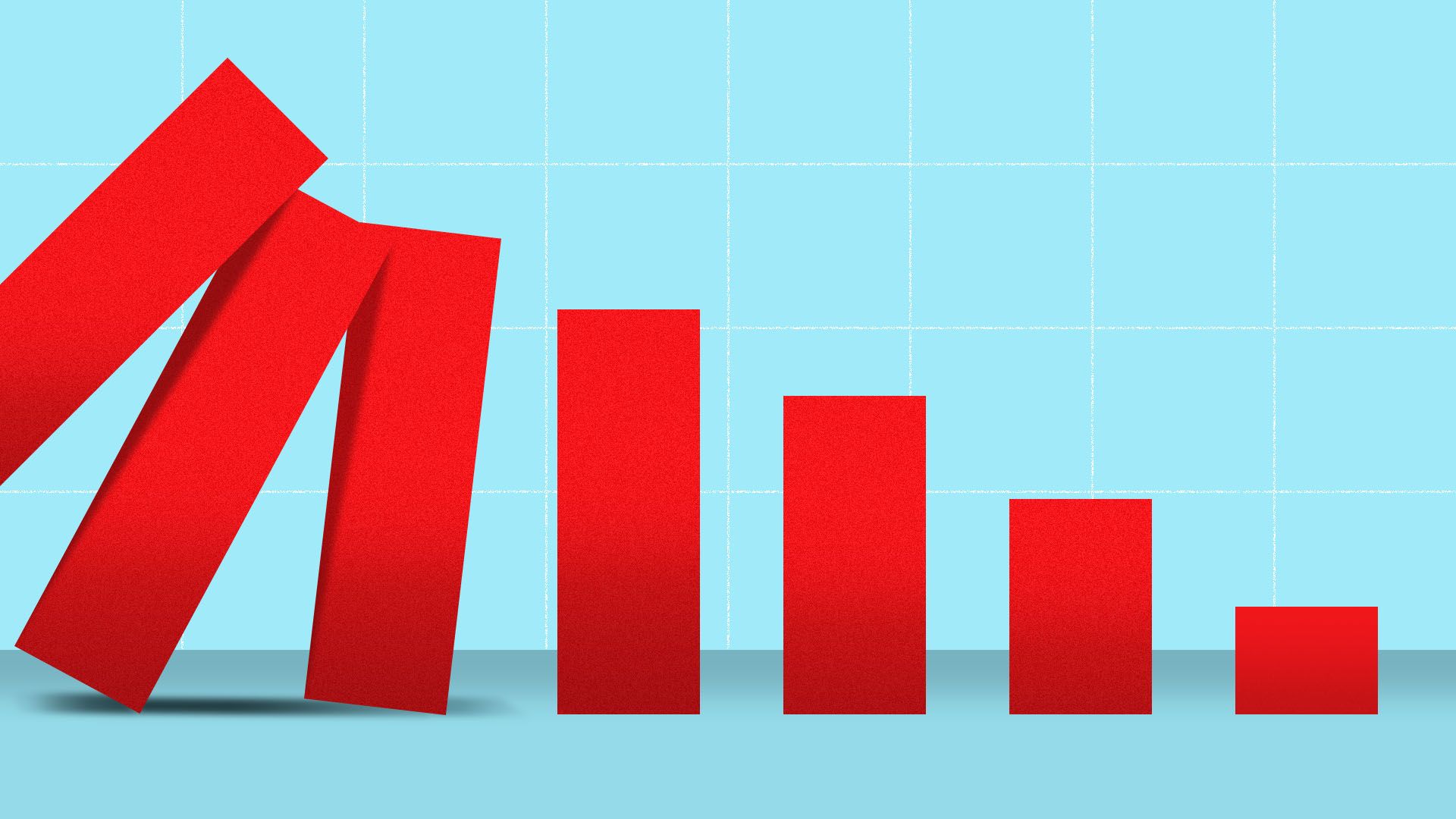The next dominoes in the coronavirus economy
Add Axios as your preferred source to
see more of our stories on Google.

Illustration: Sarah Grillo/Axios
Coronavirus is already the most serious threat to the U.S. economy since the financial crisis, and the dominoes are aligned for a severe recession that could erase much of the 11-year recovery.
What's happening: While the outbreak itself is unlikely to drive an economic collapse, the U.S. has been something of a ticking time bomb for some time.
- Growth has declined over the last two years despite higher government spending and a $23.4 trillion national debt.
- While the labor market has boomed, many of the jobs added have been hourly service-industry positions that offer limited scope for savings or health insurance.
- 44% of all U.S. workers earn barely enough to live on, a Brookings Institution study found in January.
Where it stands: While President Trump said late Monday that he would work with Senate Republicans on a "very substantial" payroll tax cut and relief for hourly workers, such measures — if they can be enacted — could still be insufficient to fend off a recession.
- Consumer spending has held up the economy for the last year, even as the U.S.-China trade war gutted the manufacturing industry and businesses broadly cut back on investments and outlays.
- Many companies chose to hoard their savings from the Tax Cuts and Jobs Act in cash or use it to buy back their own stock.
At the same time, corporate America is more heavily indebted than ever before, due to years of record-low interest rates and increased borrowing.
- The Federal Reserve has repeatedly warned that this spike in leveraged lending — combined with loosening covenants — has created risks not only to bond issuers, but also to the wide network of hedge funds and mutual funds (yes, mutual funds) that actually hold the debt.
- In short, it's an economic haystack awaiting a match.
One big difference between 2020 and 2008 is breadth. The financial crisis began with financial services companies and insurers, which meant bailouts and structural fixes could be aimed at Wall Street. But this crisis is hitting the entire economy with a single blow — harming not just the Fortune 500, but also mom-and-pop businesses.
Between the lines: The cavalry may not be coming to the rescue this time.
- The Federal Reserve, which helped rescue the economy after the 2008 crisis, is effectively out of ammunition.
- Starting in 2007, the Fed cut interest rates by 500 basis points, bought an unprecedented amount of U.S. debt and unleashed a flurry of stimulus programs that propped up the economy.
- Rather than winding them down, the Fed has had to extend the programs throughout the recovery.
- As a result, after last week's emergency rate cut — and possibly another that's expected at next week's policy meeting — the central bank has limited ability to take action.
Threat level: Government also increasingly looks broken. The dysfunction in Washington is dimming hopes for major fiscal stimulus that economists say will be needed to offset the outbreak's negative impact.
- The $8 billion allotted to coronavirus so far "is an insult," Claudia Sahm, who formerly served as top economist for the Fed's Board of Governors, tells Axios. "It has to be hundreds of billions of dollars, and it has to be now."
- "I want to see it — and maybe I will," Sahm, now director of macroeconomic policy at the Washington Center for Equitable Growth, says. "But without that piece, we are in a recession before the end of the year."

